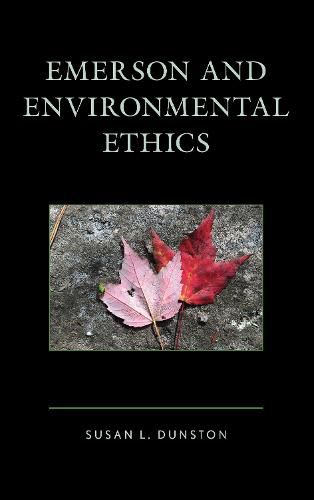Readings Newsletter
Become a Readings Member to make your shopping experience even easier.
Sign in or sign up for free!
You’re not far away from qualifying for FREE standard shipping within Australia
You’ve qualified for FREE standard shipping within Australia
The cart is loading…






At the core of Emerson’s philosophy is his view as a naturalist that we are made of the same atoms as the world is. In counterpoint to this identity, he noted the fluid evolution and diversity of combinations and configurations of those atoms. Thus, he argued, our relation and connection to the world are not occasional or recreational, but everywhere and always, and also reciprocal, ongoing, and creative. He declared he would be a naturalist, which for him meant being a knowledgeable lover of nature. Emerson’s famous insistence on an original relation to the universe centered on morally creative engagement with the environment. It took the form of a nature literacy that has become central to contemporary environmental ethics. The essential argument of this book is that Emerson’s integrated philosophy of nature, ethics, and creativity is a powerful prototype for a diverse range of contemporary environmental ethics. After describing Emerson’s own environmental literacy and ethical, aesthetic, and creative practices of relating to the natural world, Dunston delineates a web of environmental ethics that connects Emerson to contemporary eco-feminism, living systems theory, Native American science, Asian philosophy, and environmental activism.
$9.00 standard shipping within Australia
FREE standard shipping within Australia for orders over $100.00
Express & International shipping calculated at checkout
At the core of Emerson’s philosophy is his view as a naturalist that we are made of the same atoms as the world is. In counterpoint to this identity, he noted the fluid evolution and diversity of combinations and configurations of those atoms. Thus, he argued, our relation and connection to the world are not occasional or recreational, but everywhere and always, and also reciprocal, ongoing, and creative. He declared he would be a naturalist, which for him meant being a knowledgeable lover of nature. Emerson’s famous insistence on an original relation to the universe centered on morally creative engagement with the environment. It took the form of a nature literacy that has become central to contemporary environmental ethics. The essential argument of this book is that Emerson’s integrated philosophy of nature, ethics, and creativity is a powerful prototype for a diverse range of contemporary environmental ethics. After describing Emerson’s own environmental literacy and ethical, aesthetic, and creative practices of relating to the natural world, Dunston delineates a web of environmental ethics that connects Emerson to contemporary eco-feminism, living systems theory, Native American science, Asian philosophy, and environmental activism.